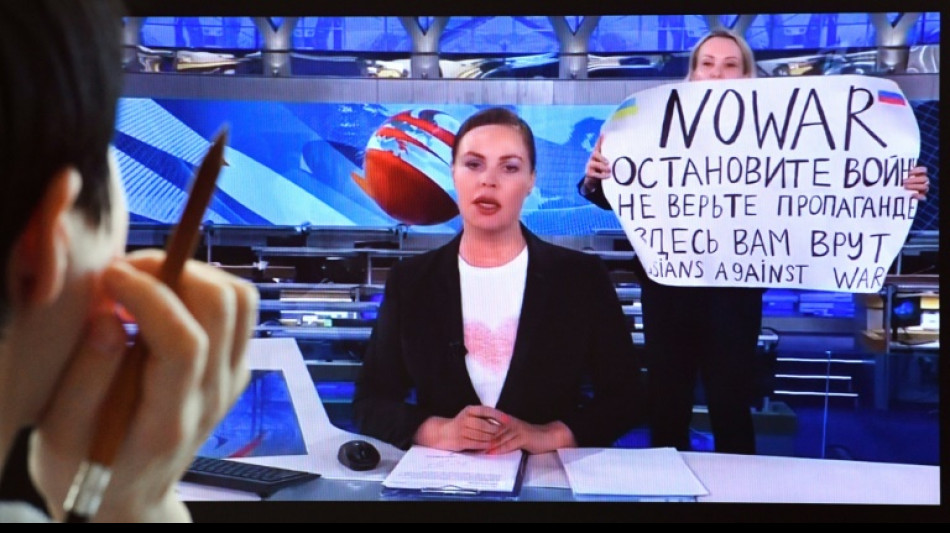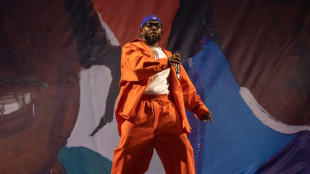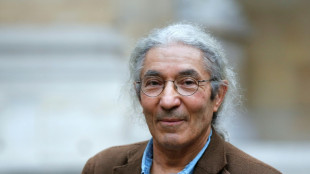

Macron offers shelter for Russian editor held over TV protest
French President Emmanuel Macron on Tuesday offered asylum or other forms of consular protection to a Russian journalist facing prison after she brandished a slogan protesting the war on Ukraine on live state-controlled TV.
Marina Ovsyannikova, an editor at Channel One television, barged onto the set of its flagship Vremya (Time) evening news late Monday, holding a poster reading "No War" in English.
She was detained with her whereabouts unknown overnight, as the incident raised new alarm over press freedom in Russia in the wake of the invasion.
Macron, who has maintained a dialogue with President Vladimir Putin despite the war, said he would bring up her case at his next conversation with the Russian leader.
"We will launch diplomatic efforts aiming to offer (her) protection -- either at the embassy but also protection through asylum," said Macron.
"I will have the chance at my next talks with President Putin to propose this solution in a very direct and concrete manner," he added.
Channel One said an internal investigation was underway. It was a highly unusual event in Russia where state media is strictly controlled.
"I want to have as quickly as possible all clarity about her personal situation and her ability to continue with her work," Macron said.
He has repeatedly held telephone talks with Putin in recent weeks, even after the February 24 invasion of Ukraine.
- 'Russians against the war' -
Her lawyer Daniil Berman told AFP Ovsyannikova risked criminal charges with a penalty of up to 15 years in jail under new laws agreed after the invasion.
However a court spokesman in Moscow said she was appearing before a district court in Moscow on administrative charges of organising an unsanctioned action that disrupted public order, which carry a jail term of up to ten days.
The incident was widely picked up by both international and Russian media, which blurred out the message on the poster to avoid running afoul of a new media law.
Press freedom activists outside Russia accuse state television of painting a severely distorted picture of the war in a bid to maintain support for what the Kremlin calls a "special military operation".
Ovsyannikova's message in Russian read: "Stop the war. Don't believe propaganda. They are lying to you here."
It was signed in English: "Russians against the war."
Ovsyannikova managed to say a few phrases in Russian, including "Stop the war!", while news anchor Yekaterina Andreyeva tried to drown her out by speaking louder before the channel switched hastily to footage of a hospital.
In a video posted on social media, a woman who appears to be Ovsyannikova speaking before her action says she is "ashamed" to have been involved in "Kremlin propaganda" on Channel One and describes the invasion as a "crime".
Her action won praise from Ukrainian President Volodymyr Zelensky, who said: "I am grateful to those Russians who do not stop trying to tell the truth and specifically to the lady who entered the studio of Channel One with a poster against the war."
EU Commission external affairs spokesman Peter Stano said she took a "brave moral stance and dared to object Kremlin's lies and propaganda live on air on a state controlled TV channel."
This month Russia passed into law prison sentences of up to 15 years for spreading false information aimed at discrediting its military forces, as well as jail terms of up to three years for calling for sanctions against Russia.
F.Schneider--HHA



